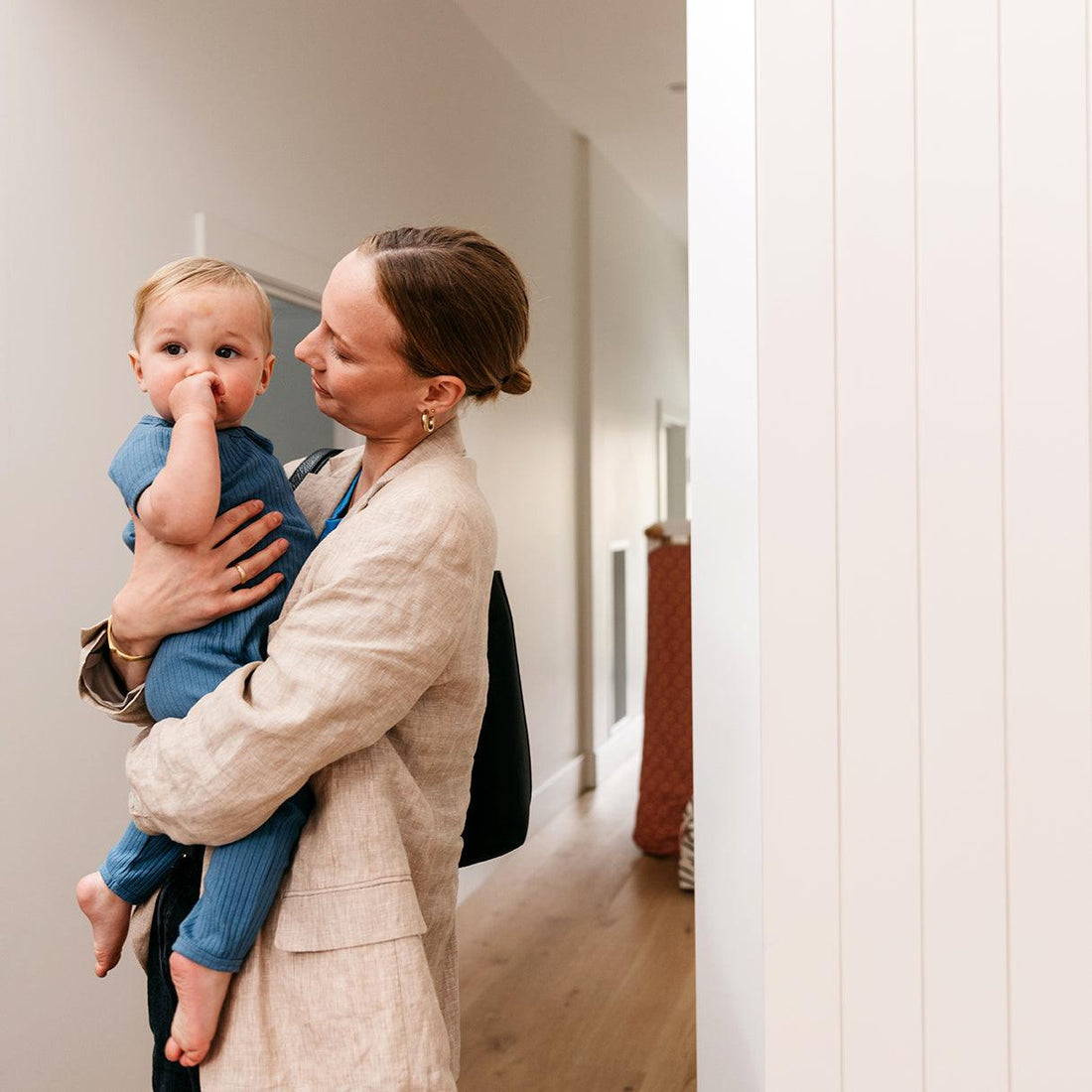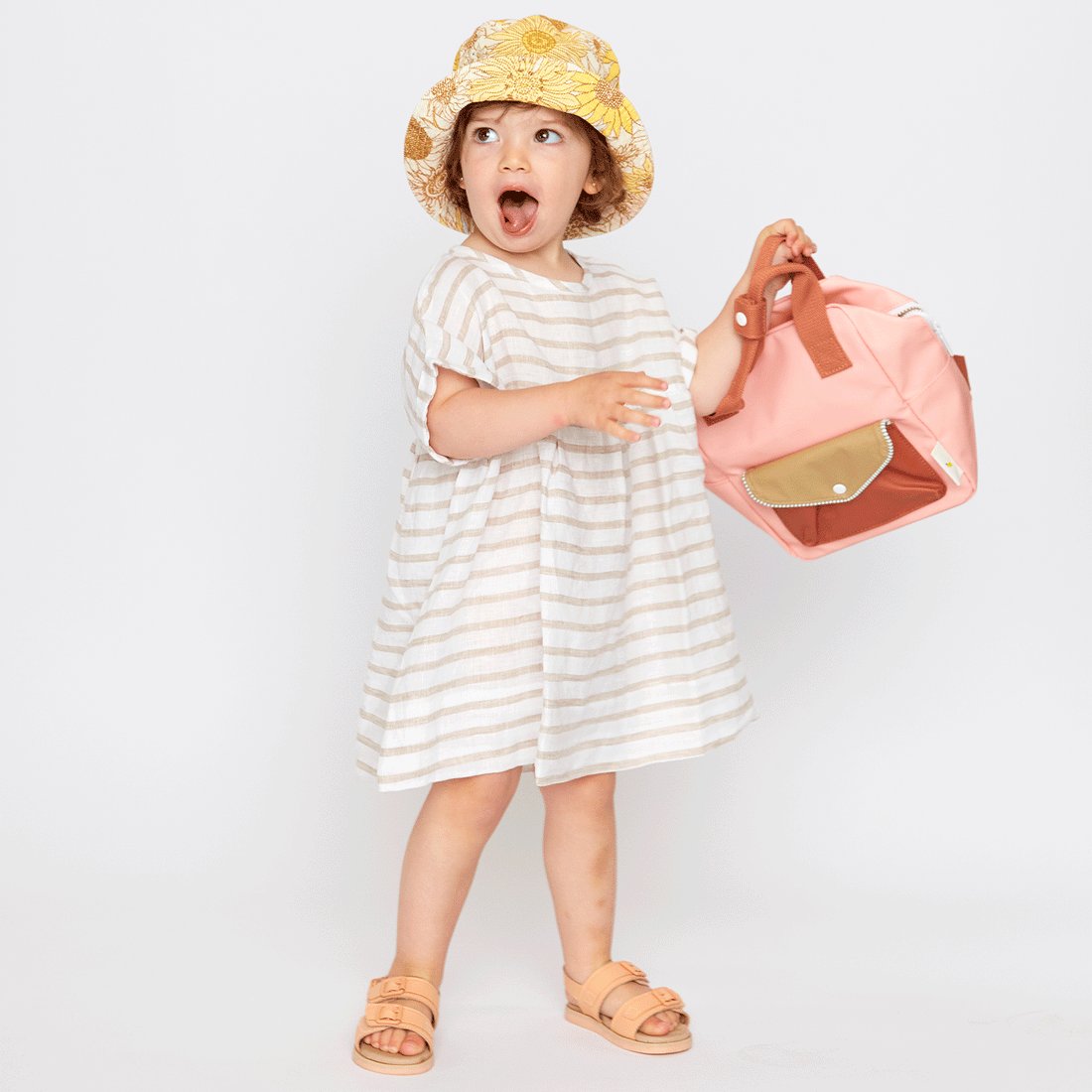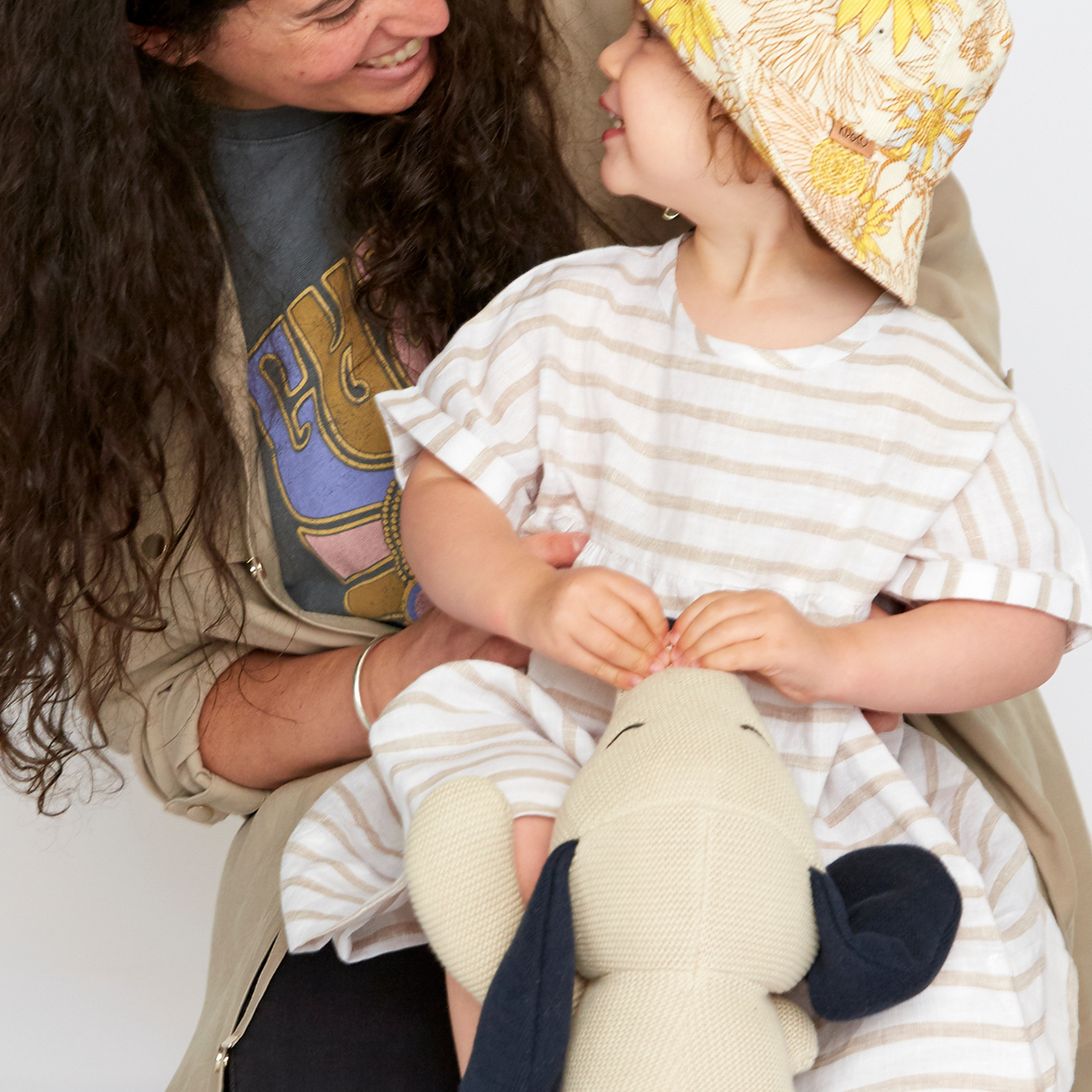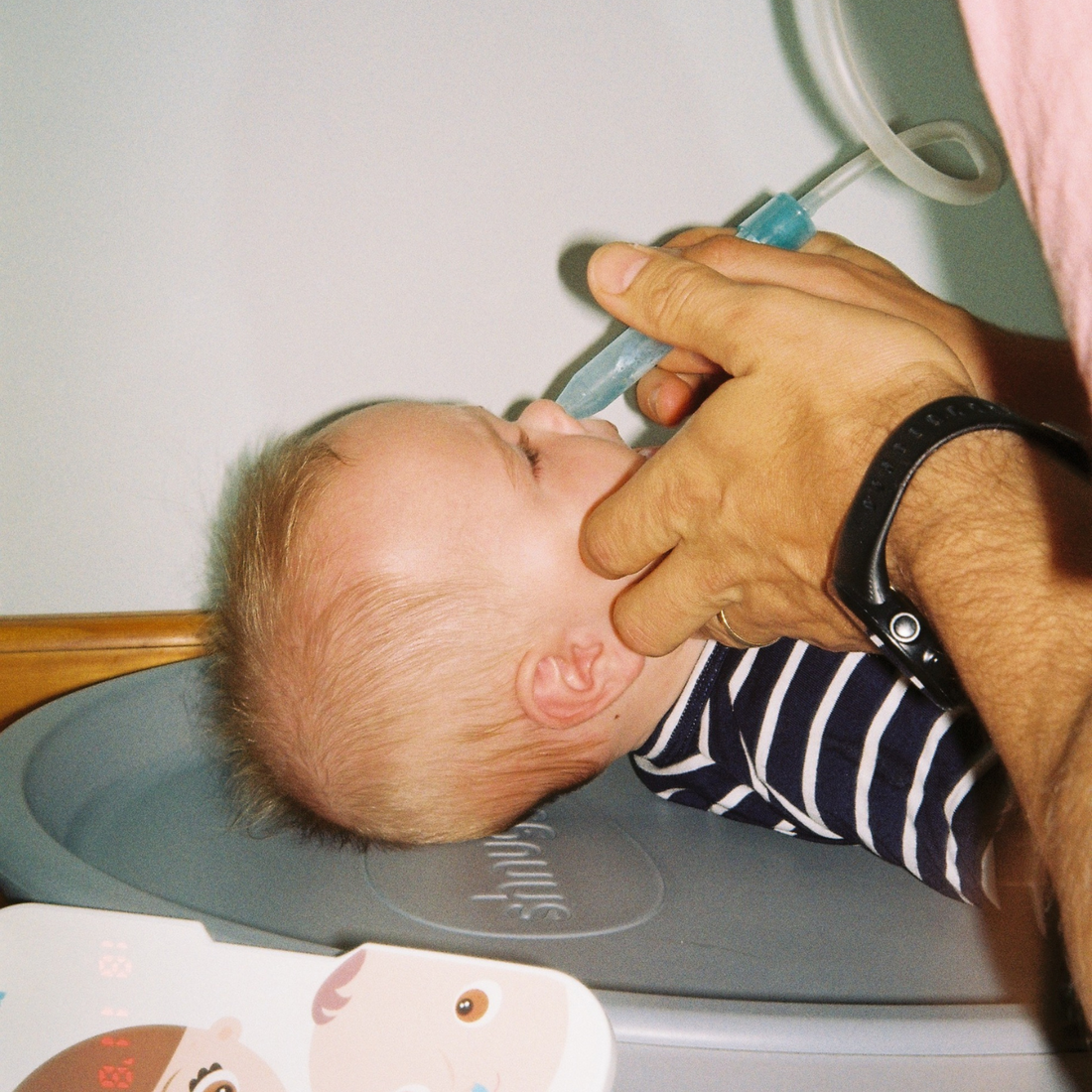A+ advice from a centre director who's seen it all.
Whatever your position, reason or situation, at some point, life factors (usually that work is a necessity) will push you to needing someone, other than you, to take care of your baby. Sometimes it’s family, sometimes it’s a nanny, but most commonly in Australia, it’s daycare. Starting your child in daycare can be scary, political and very emotional, for your child and you. “That’s why my first question to parents new to child care is ‘how are you feeling?’” says Lauren Murphy, a Childcare Centre Director in Newcastle. Murphy says it’s as much about the parents being ready for daycare as the children. As a parent, this means having realistic expectations, trusting the professionals, and being willing to expand your child’s circle of carers. If you do, the supportive and developmental benefits of daycare can be huge. But what are you meant to expect, and how do you find the right one? Murphy describes her role as “Problem solving and helping parents navigate their way through the formative years of nought to five,” so we thought she was the perfect person to ask all our daycare 101 questions.
What do you think is the main benefit of daycare?
“We’re specifically trained in helping children meet their developmental milestones. Something that’s really hard to keep track of if you’re a first time parent and don’t have anything to compare to. Most centres run a child interest based programme which targets developmental milestones, and it’s adaptable for each student. We pick topics that engage children but vary the tasks to meet their abilities. If Sally and Jimmy are both obsessed with dinosaurs, but Sally struggles with her fine motor skills, we might do some cutting, but Sally cuts out an egg while Jimmy cuts out a T-Rex. They get bored if the task isn’t at their right level. But that’s what keeps them focused and all doing something together. Parents are updated about development goals via the centre email, daily book or sometimes apps, but generally, discussions about development issues are had as needed. Educators are very experienced in picking up red flags, and have lots of advice on how to help issues. If something is going on, they’ll be the first to pick it up.”
What should you look for in a daycare centre?
“It should be a happy, warm environment. It’s important to me that parents can feel that as soon as they walk in. Sure, there will be will be days when you walk in and every child is losing it because there’s just been a mass drop off, but majority of the time, it should be a happy, loving place. It should give you a good gut feeling. When you go to orientation, take your child, and have your questions prepared. Ask about staff retention. A centre with a low staff turnover is a good indication of a centre that’s well managed and has a good culture. Know that it’s a young industry, with a lot more centres than educators to work in them, so if the room leaders and core staff are stable, it’s a sign of a good centre. Ask about how the centre likes to communicate with parents, and don’t dismiss them if they don’t use an updates app. A lot of centres have found those apps mean an educator is stuck behind an iPad, servicing the parents, rather than engaging with the children, so they have chosen not to use them. Ask about the number of children in your room, the qualifications of the staff in that room and how they manage routine. Then, watch and listen. Observe how the staff respond to the children in the rooms: are they touching, talking, engaging? And observe the room set up: are the toys accessible for the children?”
How much is daycare?
A popular query for new parents is determining how much it costs to send your child to daycare. There's no definite answer as it varies from state to state and different providers, however, as a general indication it is around $113 a day. This doesn't include subsidies or take into consideration your region.
What’s the biggest worry for new daycare parents? And what should they actually worry about?
“Lots of parents worry about sleep. I understand, napping with a heap of other children is very different to how it’s done at home, but children are very adaptable. And, I promise, we’ve seen worse. What I do ask all parents to think about, is the change from one-on-one parent-child ratio, to having a carer whose attention is split between a bunch of children. One-to-four in the Babies Room (ages 0-2). I ask them to think about how your child will cope with that? And as parents, how do you feel about that. There are benefits to it ofcourse, it helps encourage independence and socialisation between the children, and throughout the day each child will definitely get bursts of one-to-one attention, but there will be times that their wants aren’t met immediately as they may be at home. Regardless of what your concerns are, it’s really important to talk to your orientation guide about any and all of your anxieties. Then they can clarify, and reassure you.”
When is a child ready for daycare?
“We take babies from 6 weeks, and that is always because some people just have to get back to work, they have businesses and mortgages, and they can’t wait. And rest assured these babies are beautifully cared for. In terms of coming for socialisation, which is key for lots of parents. Toddlers noticeably start to get bored at home, and start seeking more interaction, but I think from 8 months children start to benefit socially from daycare. That’s when they start to move more, and want to explore, and there’s only so much within your home to look at. Daycare lets them explore in a secure environment where something new and exciting happens every day.
How should you prepare your kid, and yourself?
“Making sure you’ve gone through the tick list from your centre, labelled all their clothes and hats, but then, it’s all about encouraging independence. If you are cosleeping, or nursing them to sleep, I encourage parents to start introducing self sleep. It’s also great to start building self help skills. With babies, this means making sure they are getting floor time and you’re allowing them the opportunity to figure things out, not just picking them up the second they get upset. When they do get upset, try distracting them with a song, or a toy, so they learn other ways of calming themselves than just being picked up, because at daycare, that won’t always be an option. With older toddlers, role play can be helpful, and talking to them about the people at the centre.”
What to pack for daycare?
- Backpack
- Drink bottle
- Lunch box
- Lunch cool bag
- Nappies
- Change of outfit
- Hat
- Jacket
- Sunscreen
- Comfort toy
- Sleep bag
- Cot sheet
- Bottles
How long does it take a kid to settle-in to daycare?
“The first 2 to 3 weeks is really hard. And easing into it with just one day a week can actually be detrimental. What you want is for your child to develop an attachment and recognition for the carers and children at their school. A week is a long time for a little one so they’re really being dropped in the deep end each week. They don’t have the opportunity to feel safe and settle. Going more often will make that easier. If you only want them to go one day a week, totally fine, but if you can do more days in the first few weeks it’s so much easier for them. In general, it takes a one-year old, coming more than twice a week, on average, three weeks to settle. Once a week, more like two months.”
What should you expect the first drop off to be like?
“Your child will cry when you leave, but that doesn’t mean they will be crying all day. Give them a half hour, and then call the centre to see how they’re going and put your mind at ease. I advise parents to say goodbye, and not just sneak out. It’s important for your child to know you’re going, and that you’ll be back. Sometimes you might think it’s easier to duck out while they are distracted, but it can really distress them if you’re suddenly gone. So a kiss, cuddle, a “I’ll see you this afternoon”, is best. You don’t have to make a big show of it, but it helps them learn the routine.
What kind of relationship should you expect to have with your daycare?
“You should know your child’s room leader, the core staff of that room (there should be a minimum of two familiar staff in the room at any time), and the centre director. At drop off, let the room core staff on duty know of anything that might be upsetting your little one that day, teething or a bad night, and if you’ve given them any medication. At pickup, read the day book, and check the communication board, and if they are available, you can chat to one of the room staff about the day. It’s great to talk to them about changing interests and any development leaps you’ve noticed. Any big conversations, from disruptions in your child's life to concerns you have about the centre, should go to the director. And don’t feel nervous about voicing concerns, daycare is a place where communication and feedback is welcome. There will be times when you pick up your child, and five minutes earlier they’ve done a poo, and it hasn’t been picked up. It doesn’t mean that your child’s being neglected, but definitely let the staff know, because you’re going to feel better if you’ve said something. Saying something will stop you feeling worried about your child. Also, if there is an issue, saying something will help it be resolved, for your child and others. It may be something simple, or the staff might need a little more mentoring. I also ensure parents are holding up their end of the bargain and follow procedures too. I speak to parents weekly. With daycare, it’s all about communication.”
If you start, and it doesn’t feel right, what should you do?
“After two weeks, if you still don’t feel comfortable in a centre, talk to the director and voice your concerns. After that conversation, if you still don’t feel comfortable, find somewhere else. As a parent you have to go with your gut, and day care should help, not hinder, your load.”
































